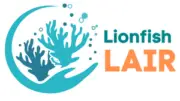Goldfish are one of the least fussy eaters in the fishkeeping world, accepting a wide range of different foods when available, and even eating plant matter and sometimes algae when hungry. Fish food should obviously be fed to goldfish as their main diet, but what happens when that food runs out or you want to try something different? It is important to know what you can feed your goldfish as an alternative to their regular food should the situation arise.
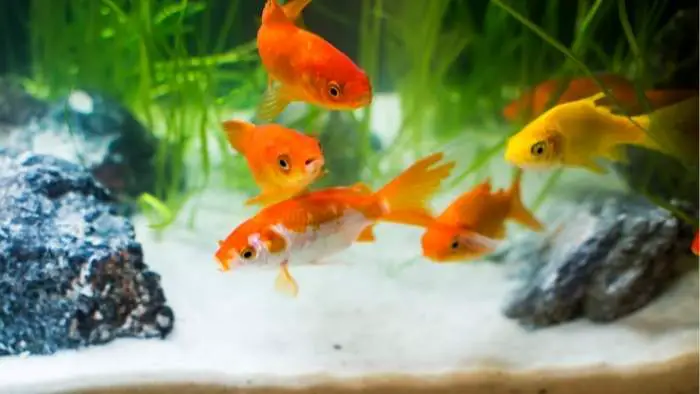
Fortunately, goldfish will eat almost anything put in front of them, which makes finding healthy alternatives to their regular diet very easy and stress-free when you know what to buy.
Vegetables like spinach and kale are perfect, as well as peas. When it comes to fruits, you can feed your goldfish grape, orange, watermelon, apple, banana, and pear. Interestingly enough, other hobbyists have even admitted to feeding their goldfish oatmeal and even cooked rice.
Goldfish Diet in the Wild
Goldfish are omnivores and also scavengers, eating anything they can fit in their mouths when they are in the wild. Typically, their diet will consist mainly of aquatic plants, algae, insects, small crustaceans, smaller fish, and worms.
Human Food That Goldfish Can Eat
Goldfish eat a plethora of different things, and because they do not technically have a stomach, it takes them less time to digest food, resulting in them producing more waste and also being hungry a lot of the time!
They certainly enjoy snacking on human foods as well as fish food and can safely be fed many different kinds of fruits and vegetables too, let's have a look.
Vegetables to Feed Your Goldfish
We have compiled a comprehensive list of the best vegetables to feed your goldfish when you want to treat them or have simply run out of fish food! If you don't have any of the vegetables below in your kitchen, then it is probably time to start thinking about taking care of yourself a little better!
- Kale
- Chard
- Cucumber slices
- Sweet potatoes
- Peas
- Lettuce
- Mushrooms
- Spinach
- Potatoes
- Zucchini (Courgette)
- Carrots
- Cauliflower
- Broccoli
- Pumpkin
- Cabbage
- Lima beans
- Carrots
Pretty much all vegetables are good to feed your goldfish, but you should always boil or microwave the hard ones until soft before feeding them to your fish, and of course, thaw the frozen peas first!
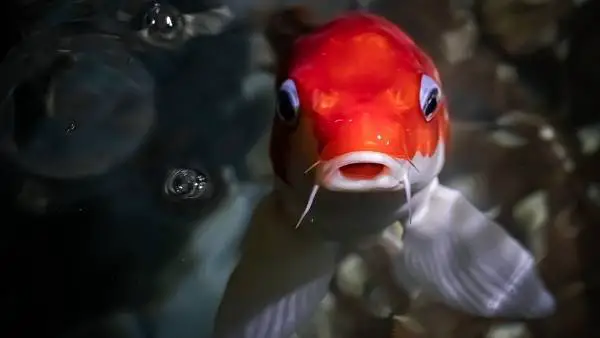
Fruits to Feed Your Goldfish
Below is a wide range of the most preferred fruits for your goldfish should you wish to treat them or have simply run out of goldfish food.
- Orange
- Watermelon
- Apple
- Banana
- Raspberries
- Grapes
- Strawberries
- Pears
- Mangos
Exactly the same with vegetables, you should always boil or microwave them to soften them down and dice them into small bite-sized pieces before feeding them to your goldfish.
Feeding Peas to goldfish
Peas are one of the best human food to feed your goldfish due to the high nutritional value and the fact that they typically sink to the bottom of your tank, they are also rich in fiber, unlike other vegetables. Fiber is incredibly important to goldfish as they do not have proper stomachs and rely on the fibers in foods to help remove the waste from their body.
Swim bladder disorder can be caused when a goldfish is unable to remove its body waste, and fancy goldfish are more susceptible to picking up this disease than regular goldfish due to their body shape forcing their internal organs to be much tighter.
By failing to remove even the smallest amount of waste, fancy goldfish are at an extremely high risk of picking up the disease. Overfeeding your goldfish with too many peas can also cause problems to both your fish and your fish tank community.
How to Feed Goldfish Peas
You will need to soften your peas before you feed them to your goldfish, by doing so you are making them easily digestible, but you must also remove the skin and cut each green pea in half, making it easier to eat.
Softening the Peas
Softening a pea is pretty easy to do, and there are dozens of methods that work out well. Using warm water is probably the easiest and most well-known method, simply take a cup of warm water, toss your peas into it for around 1 minute and they should be soft and ready to go and make the skin easier to remove!
You can also use a microwave to soften them up by cooking them in a small amount of water for around 30 to 45 seconds. Drain them, take the skins off, cut them in half, and you are ready to go!
Remove the Skin
You should always remove the skin from the pea as it is much harder for your goldfish to eat and digest and can even sometimes result in your goldfish choking or getting the skins stuck to the roof of their mouth!
Cut Into Pieces
Regardless of whether you have baby goldfish or giant adult goldfish, you should always cut small green peas in half. Not only are they much easier to fit in their mouths for consumption, but they are much easier to digest, which avoids causing internal damage.
How Much and Often Should You Feed Your Goldfish Peas?
Between 2 to 3 peas per adult goldfish and around 1 to 2 peas per juvenile goldfish, usually only once per week. Despite being high in fiber you do not want your goldfish to become constipated, which is a possibility if you overfeed them with peas.
Also, feeding your goldfish only one specific type of food will not allow them to consume the correct amount of nutrients to live a healthy life.
Benefits of Feeding Goldfish Peas
Peas are an incredibly beneficial addition to a regular goldfish diet, providing many benefits for your fish, but like everything, it must be done in moderation. Having said that, feeding your goldfish peas can help with constipation as they contain a lot of fiber.
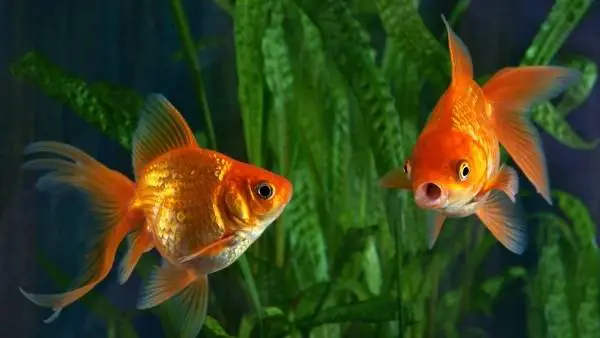
Additionally, peas can be fed to your goldfish for extra nutrients and vitamins as peas are rich in both. If you feed peas to your goldfish over the course of a few days to relieve them of constipation and it does not seem to be working, you can carry on for a few more days, but no more than 5. If your goldfish is still suffering, then it may be nothing to do with constipation and could be disease related, so take a deeper look into it.
Can Goldfish eat bread?
A question asked by many hobbyists is; can you feed goldfish bread? Absolutely not, bread is incredibly harmful to goldfish and should be avoided at all costs.
Goldfish have digestive issues anyway from not having a conventional stomach, so, feeding them bread that expands in the stomach is a pretty bad idea. The gluten is hard to digest and often leads to goldfish becoming heavily constipated.
Goldfish, despite being greedy fish can actually survive for around 2 weeks without any food. So, if you have run out of their regular food and only have bread as a substitute, you should wait until you can feed them some real goldfish food or some fruit and veggies mentioned above.
It is not just goldfish either that have a tough time with bread, in fact, many other fish species react badly to being fed bread, and so do certain humans too!
There are over 1.5 million Americans with severe gluten allergies and immune reactions to bread. Also, in the UK they have totally banned bread from being fed to fish. These reasons should justify why you should never feed your goldfish or other fish bread for that matter.
What Nutrients do Goldfish Require? (Fastest Goldfish Growth)
It is no secret that a good, balanced, and healthy diet does wonders for fish when it comes to the overall growth and also coloration - healthy fish tend to be brighter and more colorful! The diet for a goldfish usually consists of a high protein and low carbohydrate intake; this is where they get the best results. The following nutrients are key to the overall health and growth of your goldfish.
Protein
Unlike most fish, and similar to betta fish, goldfish require a high protein diet, and smaller goldfish require more protein than larger ones. When a goldfish is a baby or juvenile, they need around 45% protein and when they are fully grown and larger, it should be about 30% protein.
Plant protein is the easiest type to digest for goldfish, which is why you should predominantly feed them that, but they may also deserve some meats in the form of shrimp and occasionally bloodworms!
Fats
Goldfish should consume between 5% and 10% fat in their diet. Animal fat is the best type of fat for goldfish to eat, while plant-based fat should be fed to your goldfish in moderation.
Vitamins
Goldfish, just like us humans require vitamins to promote growth and health. Just like us, goldfish require vitamin A, D, K, and also folic acid, which they can get from a well-balanced diet and from their own feeding. Vitamin deficiency should not occur in goldfish if they are being fed a balanced and healthy diet.
Minerals
Minerals are needed for goldfish in small quantities, fortunately, they can get their minerals from water with ease.
Low Carb Diet
The goldfish diet is that of very low carbohydrates, mixed with high amounts of protein and fiber. This highlights the importance of acquiring fish food that has been purposefully made for goldfish.
Carbs are usually labeled as "bulk" or "ash" on the labels of fish food, so make sure to avoid any fish food that says 10% or higher when it comes to "ash" and "bulk".
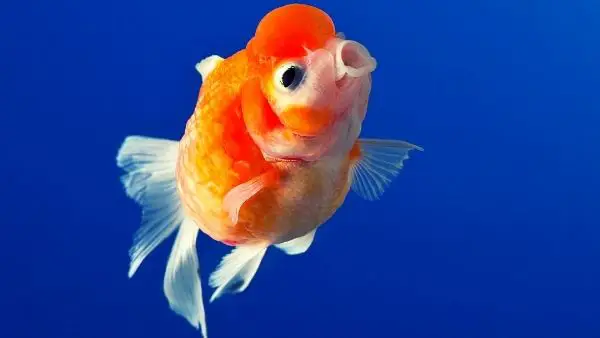
High amounts of carbohydrates are not good for goldfish, causing digestion problems and diseases. Goldfish can get their fiber from plants in your aquarium as they enjoy nibbling at them like they do in the wild.
Goldfish Feeding - What To Do
Learning how and when to feed your goldfish is almost as important as the nutritional aspects of goldfish food!
How To Feed Your Goldfish
When you feed your goldfish, before doing so you should always moisten the food before you add it to your fish tank. All you need to do is add some aquarium water to a cup and soak the food in it for a maximum of 5 minutes. By doing this you will relieve the risks of your goldfish picking up dry bladder disease.
How Often Should You Feed Your Goldfish
Feeding your goldfish twice a day is plenty for them, you should also add some live shrimp or bloodworms from time to time too, which gives them a real feeling of hunting and capturing their prey, as they do in the wild.
If you do not have a heavily planted freshwater aquarium for your goldfish to live in, then you should feed them additional fruits and vegetables to ensure they receive the right amount of fiber.
Overfeeding Goldfish
Overfeeding your goldfish is easy to do, they will always try to deceive you and act like they are hungry or haven't been fed so that you give them more. However, overfeeding your fish can result in some terrible consequences for your fish.
Feeding your goldfish correctly will involve a bit of trial and error. You should feed your goldfish tank and observe how much they eat within a 2-minute period, whatever they have left behind should be noted, and you should not feed them anymore than the maximum they ate within that time frame.
Signs of Overfeeding Goldfish
Overfeeding goldfish is an all too common occurrence, but fortunately, it is easy to identify the early signs of overfeeding your fish:
- Cloudy Water: If the water in your tank is appearing cloudy very quickly then this is a sign of uneaten food within your tank.
- Harmful Bacteria: There are many harmful bacterias that get released into your aquarium when you overfeed your fish, which grow incredibly quickly if your tank has a lot of organic matter residing in it. Mold can grow within a matter of days in your aquarium, so, it is best to identify the issue quickly before your fish become diseased and infected.
- Reduced Oxygen: When there is a lot of bacteria and organic matter residing in your fish tank, the oxygen levels naturally begin to dwindle.
- Algae Spikes: The number of algae in your aquarium will significantly increase if you are overfeeding your fish as the algae will feed off the excess nutrients and matter produced by non-eaten foods and extra goldfish waste.
- pH Level Changes: The water quality and pH level of your aquarium may change significantly if there you are overfeeding your goldfish.
As soon as you have identified that your fish have been overfed, you must perform a full tank refurbishment, by changing the infected water over a period of a couple of days and by consistently feeding your goldfish the correct amount.
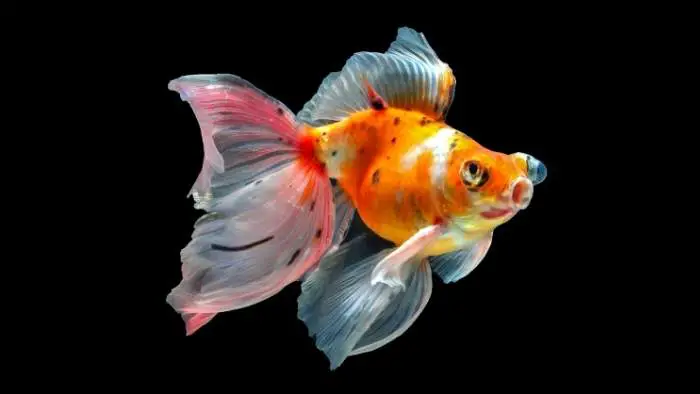
If you notice a lot of algae in your aquarium, do not freak out as some of this can be beneficial algae that are not harmful to your fish or other tank residents. However, if you simply want to clean out your tank by removing algae, you should deploy some freshwater algae eaters to do the job for you.
Conclusion
Feeding your goldfish should be an enjoyable task and easy to do, the most important aspect is getting their diet right.
Whilst you certainly can feed goldfish alternative foods and even human foods, feeding them actual goldfish food and plant matter is the best and most natural option.
If you are struggling to figure out how much you should feed your goldfish, you should observe how much they consume within a two-minute time period and try and replicate that portion size going forward.
